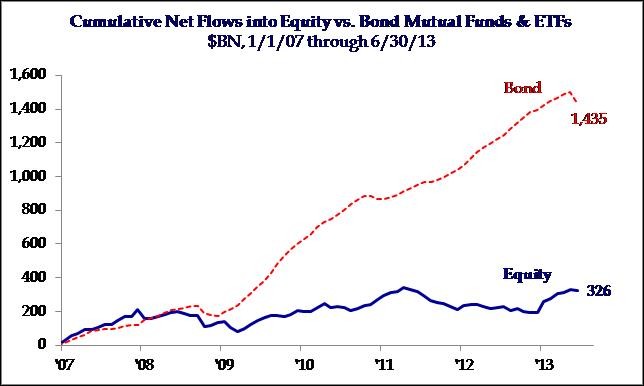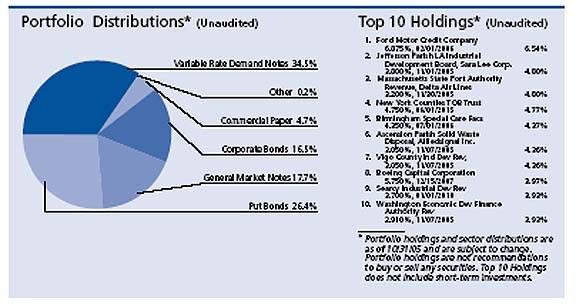Are Utilities a Safe Bet 3 Funds to Sell Now Mutual Fund Commentary
Post on: 12 Июнь, 2015 No Comment

Utilities are among the safest investment bets courtesy of the regulated nature of their business, but they also have their share of concerns, which could adversely impact their suitability as investment options. The increasing regulatory glare and high debts on their balance sheet could keep investors away from the space. Importantly, they remain exposed to the eventual uptrend in long-term interest rates, though that admittedly isn’t a near-term issue.
Regulations Slated to Change
The U.S. Environmental Protection Agency (EPA) has proposed a new plan to curb carbon pollution from domestic power plants. The objective is to reduce emissions by 30% by 2030 from 2005 levels. If the plan goes into effect, electric utilities relying primarily on coal and without adequate retrofit to scale down the carbon footprint will be the worst affected.
According to one estimate, nearly $15 billion needs to be invested in the state of Michigan to upgrade energy infrastructure to match the required environmental standards prescribed by the EPA. Thus, upgrading all the old coal-fired power plants across the country to meet environmental compliance will need huge capital outlay and put immense stress on the finances of these utilities.
Rate Hike Could Increase Debt
Utilities are capital intensive businesses and the funds generated from internal sources are not always sufficient for meeting their requirements. As a result, the companies have to approach the capital markets for raising funds.
An increase in the debt level impacts the credit ratings of these utility operators. If the credit ratings go down, a company will find it difficult to borrow funds from the markets at reasonable rates, leading to a rise in cost of operations.
The Federal Reserve in its recent meeting left interest rates unchanged. However, market experts believe that the Fed might increase borrowing costs sooner than later given the current pace of U.S. economic recovery. A rising interest rate environment could add to the troubles of utility operators, as raising funds from the market becomes costlier.
Costs Under Pressure
The utility service markets are gradually transforming into buyers’ markets. Many states allow consumers to migrate from one utility operator to another. Consumers thus have the option of choosing the best and cheapest operator in the region. Higher-cost producers are gradually pushed out of the market unless they can bring down their costs.
Long-term power purchase agreements between operators and customers could also impact profitability. In situations when there is an increase in the cost of generation, the operators still have to abide by the pre-existing agreement and sell power at pre-determined rates, thereby stretching margins.
Litigation Troubles
Consumers expect an uninterrupted supply of utility services at all times. In order to ensure this supply, the operators consistently invest in upgrading their transmission lines, carry out regular maintenance work and lay new lines to distribute power.
The regulated utilities recover these costs through rate increases in their service territories. Pending rate cases and at times partial allowance of the requested rate hike make it difficult for the operators to sustain ongoing development and maintenance work.
Utilities Funds to Sell
Here we suggest 3 unfavorably ranked utilities mutual funds. These funds carry a Zacks Mutual Fund Rank #4 (Sell) or Zacks Mutual Fund Rank #5 (Strong Sell). Remember, the goal of the Zacks Mutual Fund Rank is to guide investors to identify potential winners and losers. Unlike most of the fund-rating systems, the Zacks Mutual Fund Rank is not just focused on past performance, but the likely future success of the fund.
These funds have negative year-to-date return. The minimum initial investment for the funds is $5000. These funds also have relatively high expense ratios.

Gabelli Utilities AAA (GABUX) seeks both current income and capital growth. The fund invests a large share of its assets in domestic or foreign utility companies. It focusses on acquiring common stocks which offer dividends. A maximum of 40% of its assets may be utilized to purchase foreign securities.
GABUX currently holds a Zacks Mutual Fund Rank #5 (Strong Sell) and has lost 1.73% year to date. The fund carries an expense ratio of 1.37% as compared to category average of 1.28%.
Rydex Utilities Advisor (RYAUX) seeks capital growth. The fund invests heavily in domestic equity securities issued by utility companies. It also holds derivatives, focusing on options and futures. The fund concentrates on acquiring securities of small and mid-cap companies. It may also hold ADRS and domestic government securities.
RYAUX currently holds a Zacks Mutual Fund Rank #5 (Strong Sell) and has lost 2.3% year to date. The fund carries an expense ratio of 1.88% as compared to category average of 1.28%.
ICON Utilities S (ICTUX) seeks capital growth over the long term. The fund invests the lion’s share of its assets in equity securities issued by utility companies. It purchases common and preferred stocks of companies without regard to their size.
ICTUX currently holds a Zacks Mutual Fund Rank #4 (Sell) and has lost 0.5% year to date. The fund carries an expense ratio of 1.50% as compared to category average of 1.28%.
About Zacks Mutual Fund Rank
By applying the Zacks Rank to mutual funds, investors can find funds that not only outpaced the market in the past but are also expected to outperform going forward. Learn more about the Zacks Mutual Fund Rank at  www.zacks.com/funds/mutual-funds .
Want the latest recommendations from Zacks Investment Research? Today, you can download 7 Best Stocks for the Next 30 Days. Click to get this free report














